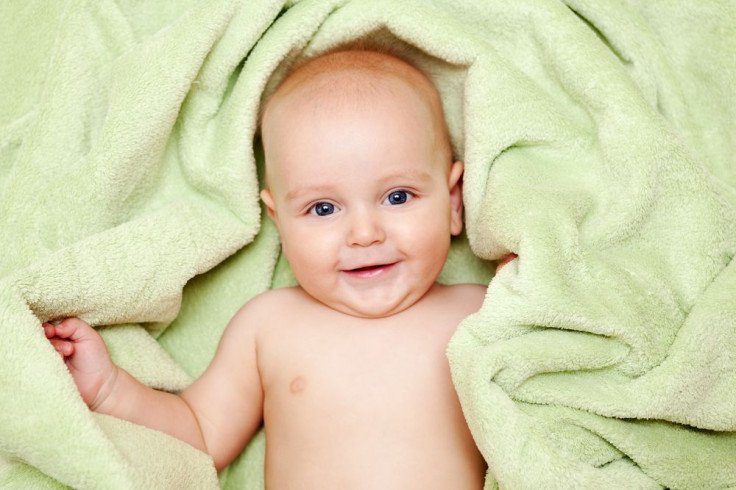Everyone Loves Cute Babies, But Wannabe Parents Enjoy Them More Than Most

In this world there are two types of people: those who find babies adorable and those who do not. Recent research has revealed that there may be a biological explanation for which group you fall into. According to the study, women who are interested in the prospect of motherhood get more enjoyment from looking at babies' faces than those who are less intrigued by the idea.
The love of a baby’s toothless grin is not universal, however, and those who are helpless to a baby’s charm fail to see how anyone could see those chubby cheeks as anything but angelic. But the fact remains that others cannot understand the appeal of drooling mouths and runny noses, and are quite frankly annoyed at strangers' offspring flooding their Facebook news feed. Dr. Amanda Hahn, a researcher at the University of Glasgow in Scotland, was intrigued by this stark divide and decided to lead a project to investigate what caused it.
Hahn invited around 200 childless heterosexual women, with an average age of 22, to examine both real and tweaked photographs of babies. The experiment started with 10 photos of real babies before moving on to digitally “enhanced” photos that attempted to make the babies appear both slightly less cute and slightly more cute, Discover Magazine reported. Volunteers were given a button that, when pressed, allowed an image to remain on the screen for longer.
The women were asked to rate the photos of the babies on a scale from 1 to 7 for their level of “cuteness.” Afterward, the respondents were asked to fill out a questionnaire to determine their “maternal tendency.” Questions involved how intrigued the women were with the idea of dressing and grooming children and how strongly they wanted children of their own.
Results showed that all of the women stared longer at the photo of the image digitally enhanced to appear cuter than they did at the image manipulated to be less so. There was also no difference in the “cuteness rating,” with all 200 women generally agreeing on which babies they found cuter than others. What Hahn did find, however, was a significant difference in how long the women who scored highest on the maternal tendency questionnaire chose to look at the digitally enhanced cute photos. It seemed they found more enjoyment in the images than those who viewed them for less time.
“These results show, for the first time, that the reward value of infant facial cuteness is greater among women who report being more interested in interacting with infants, implicating maternal tendencies in individual differences in the reward value of infant cuteness,” the study concluded.
Whether you found this conclusion obvious or simply mind-blowing, it does suggest that you may want to start planning a baby shower for your friend who's suddenly posting an unusally high quantity of cute baby memes on social media.
Source: Hahn AC, DeBruine LM, Jones BC. Reported maternal tendencies predict the reward value of infant facial cuteness, but not cuteness detection. Biology Letters. 2015.



























